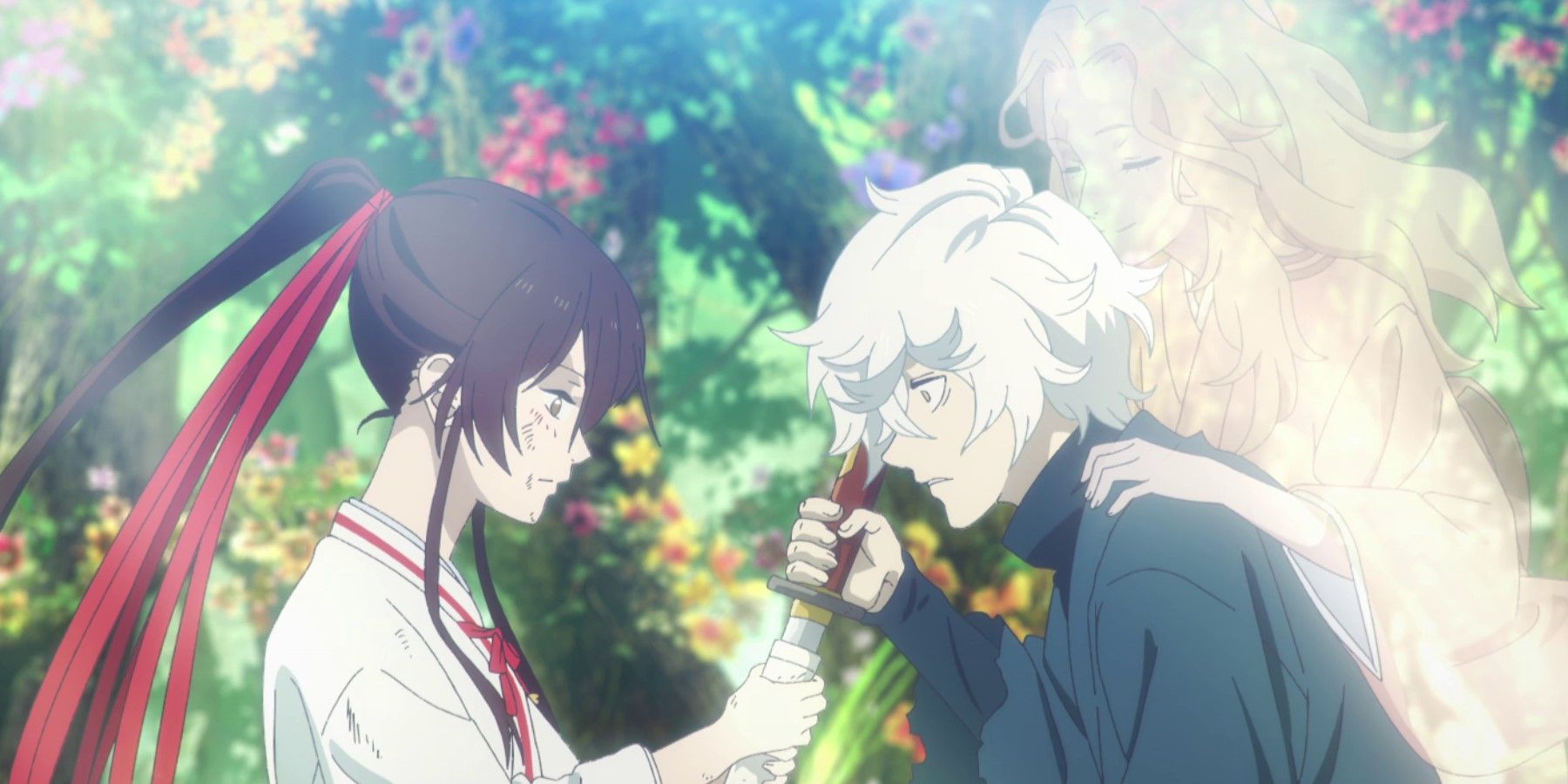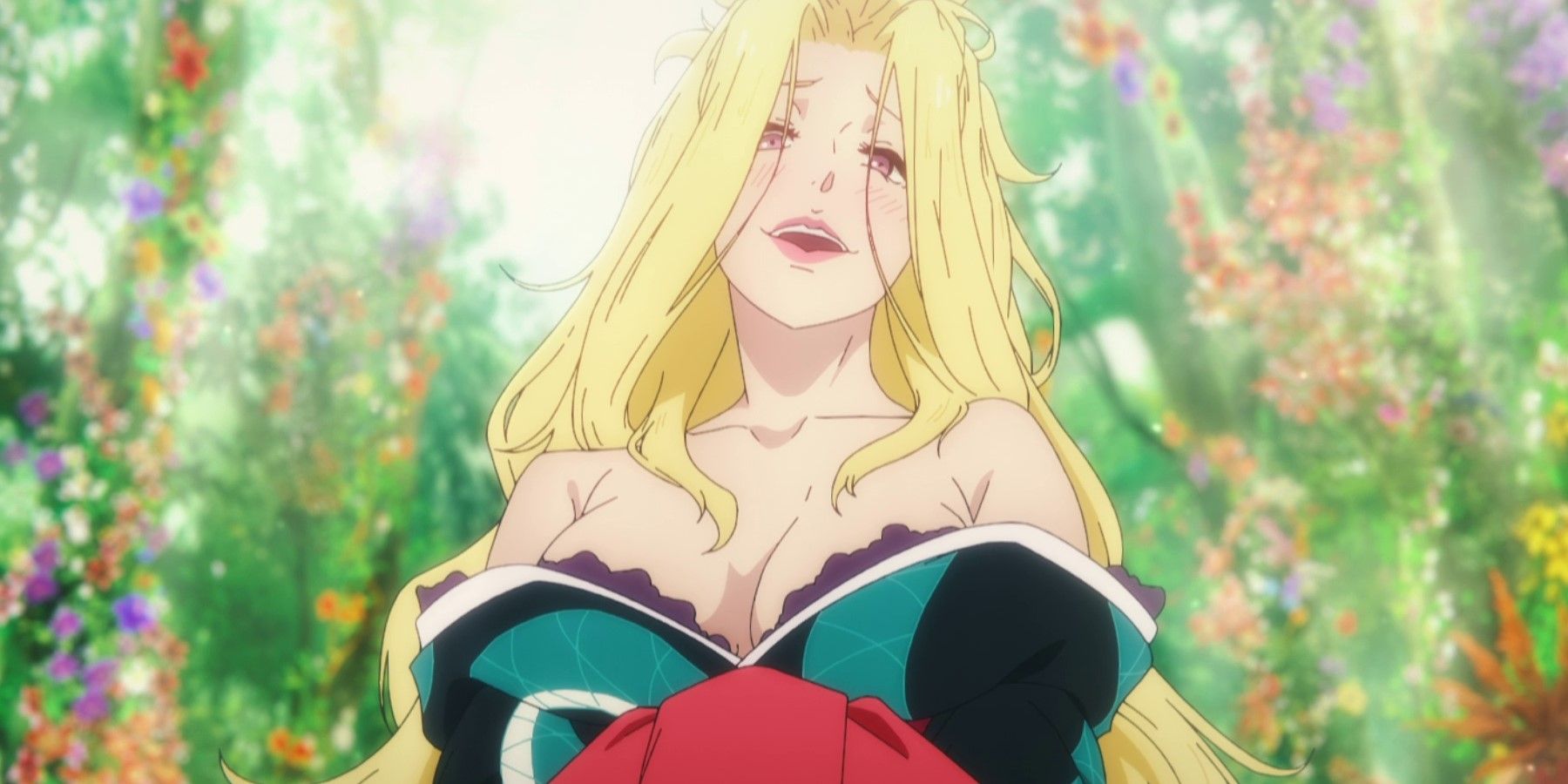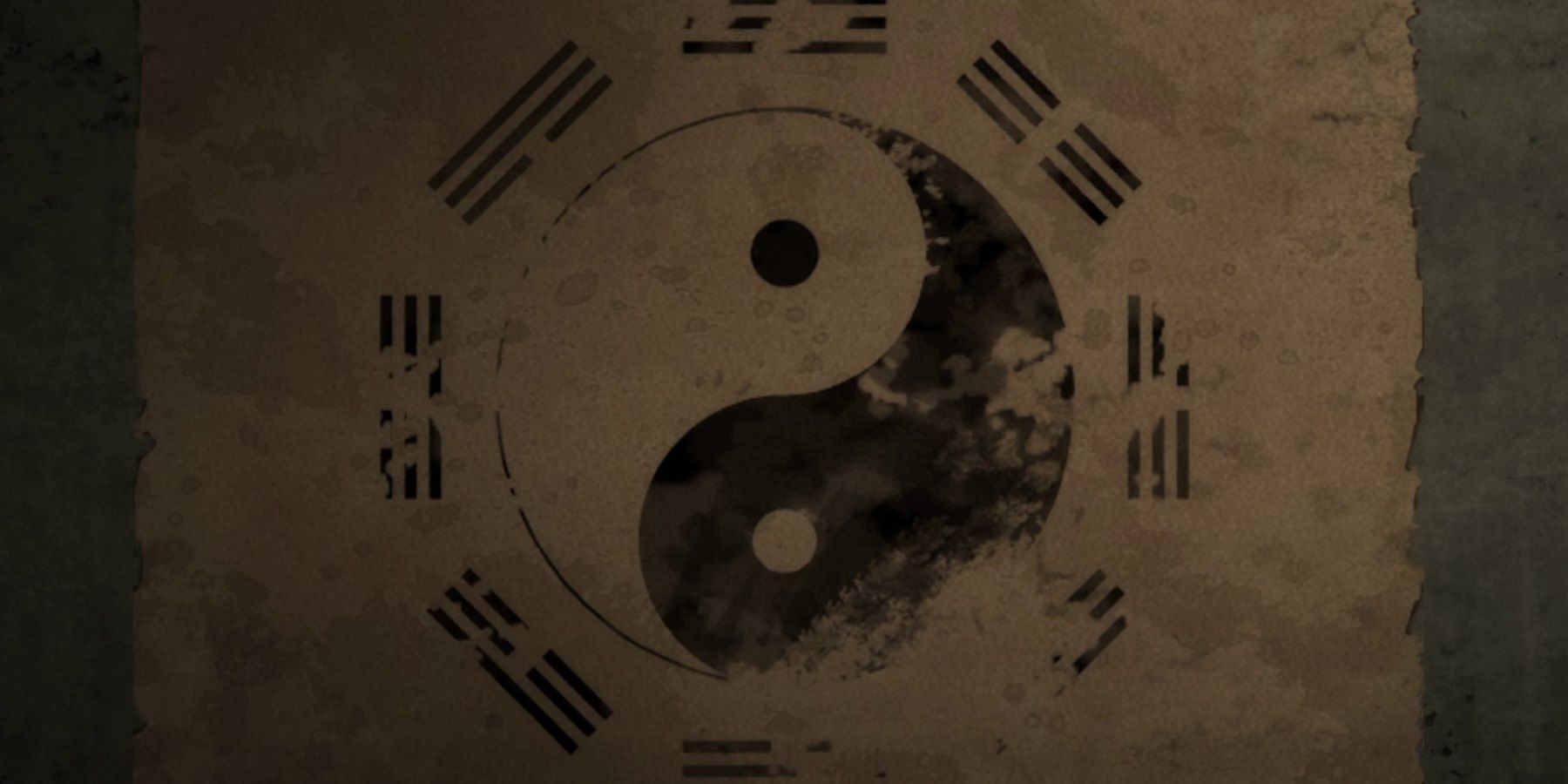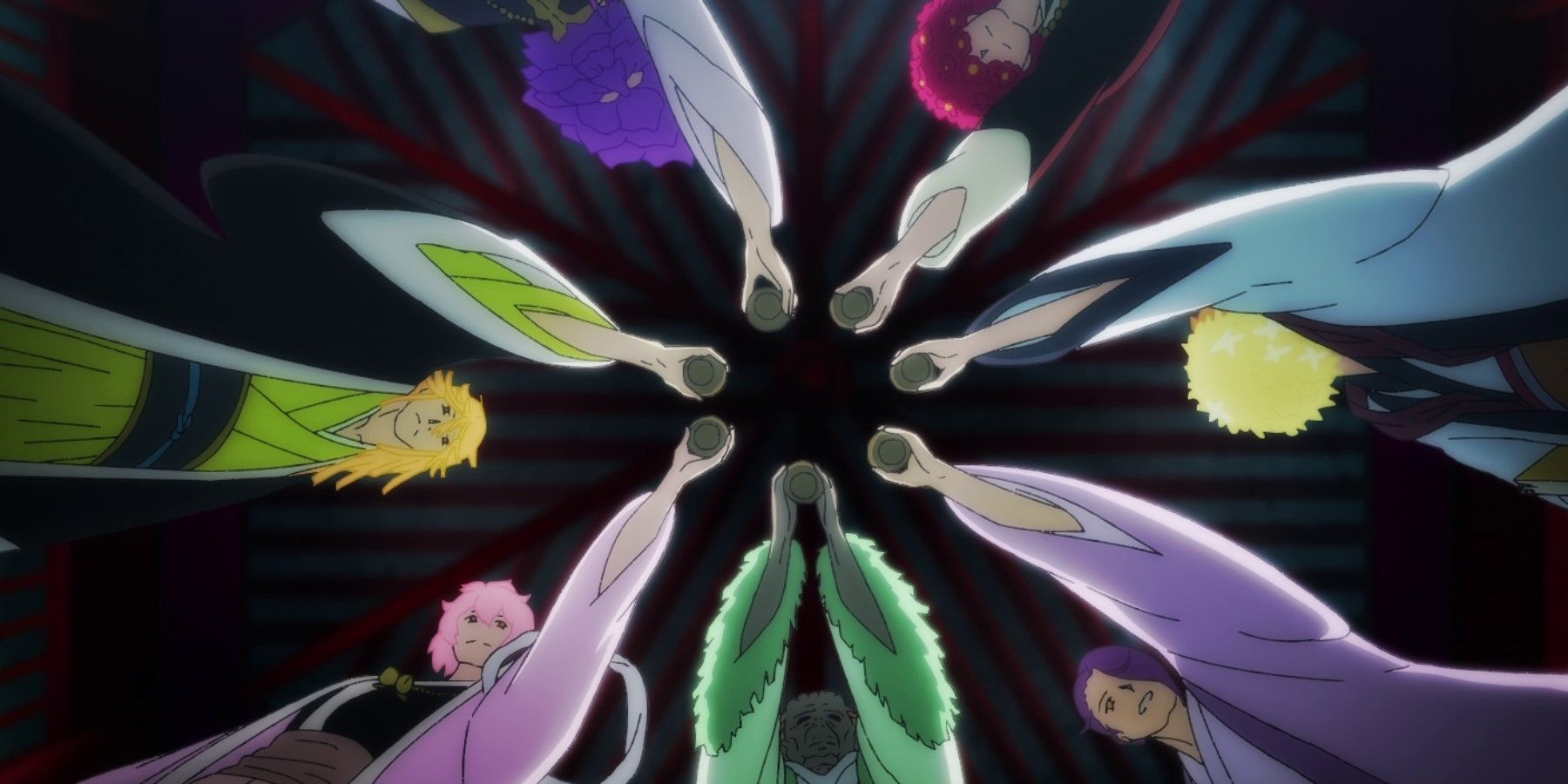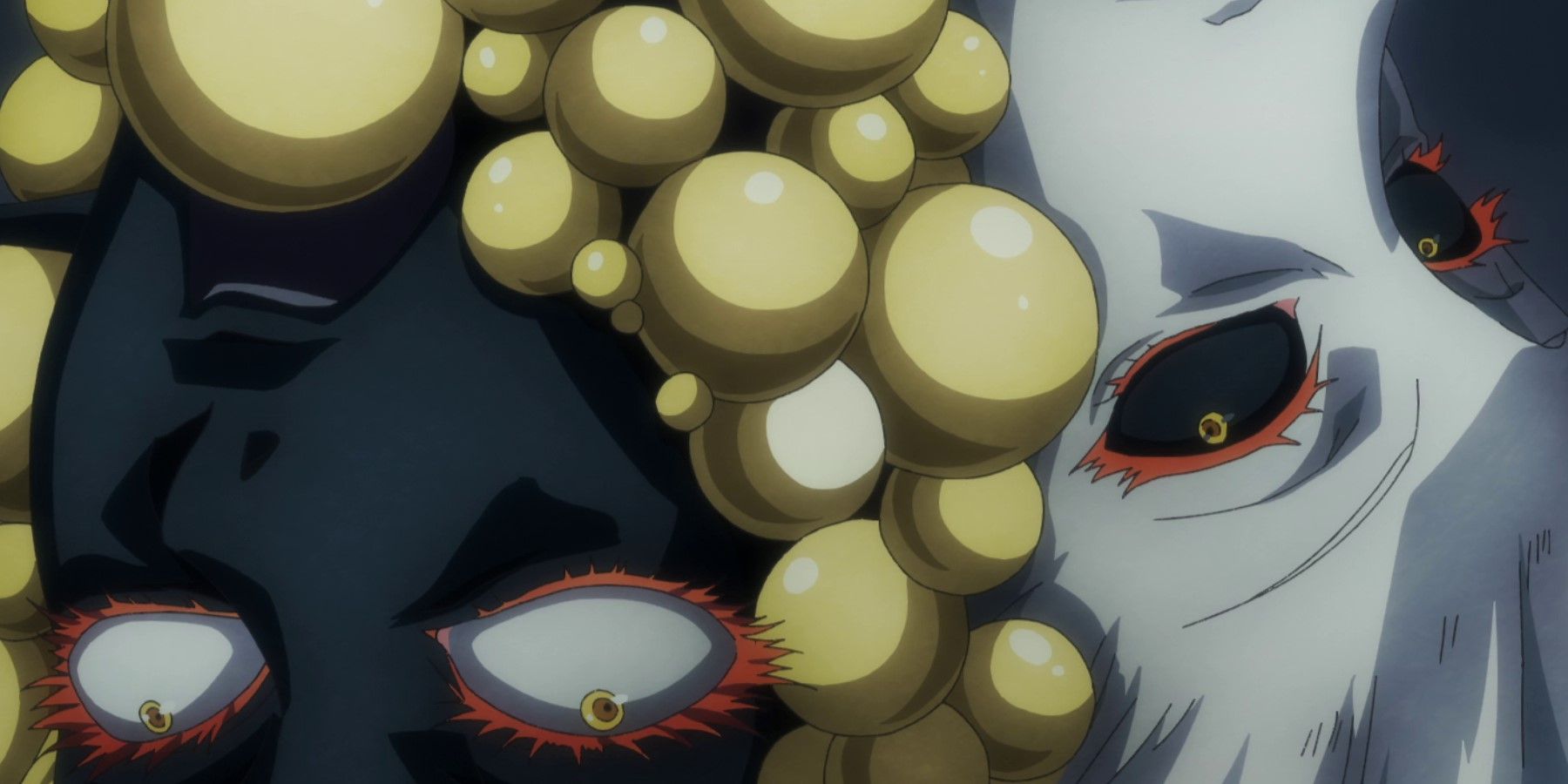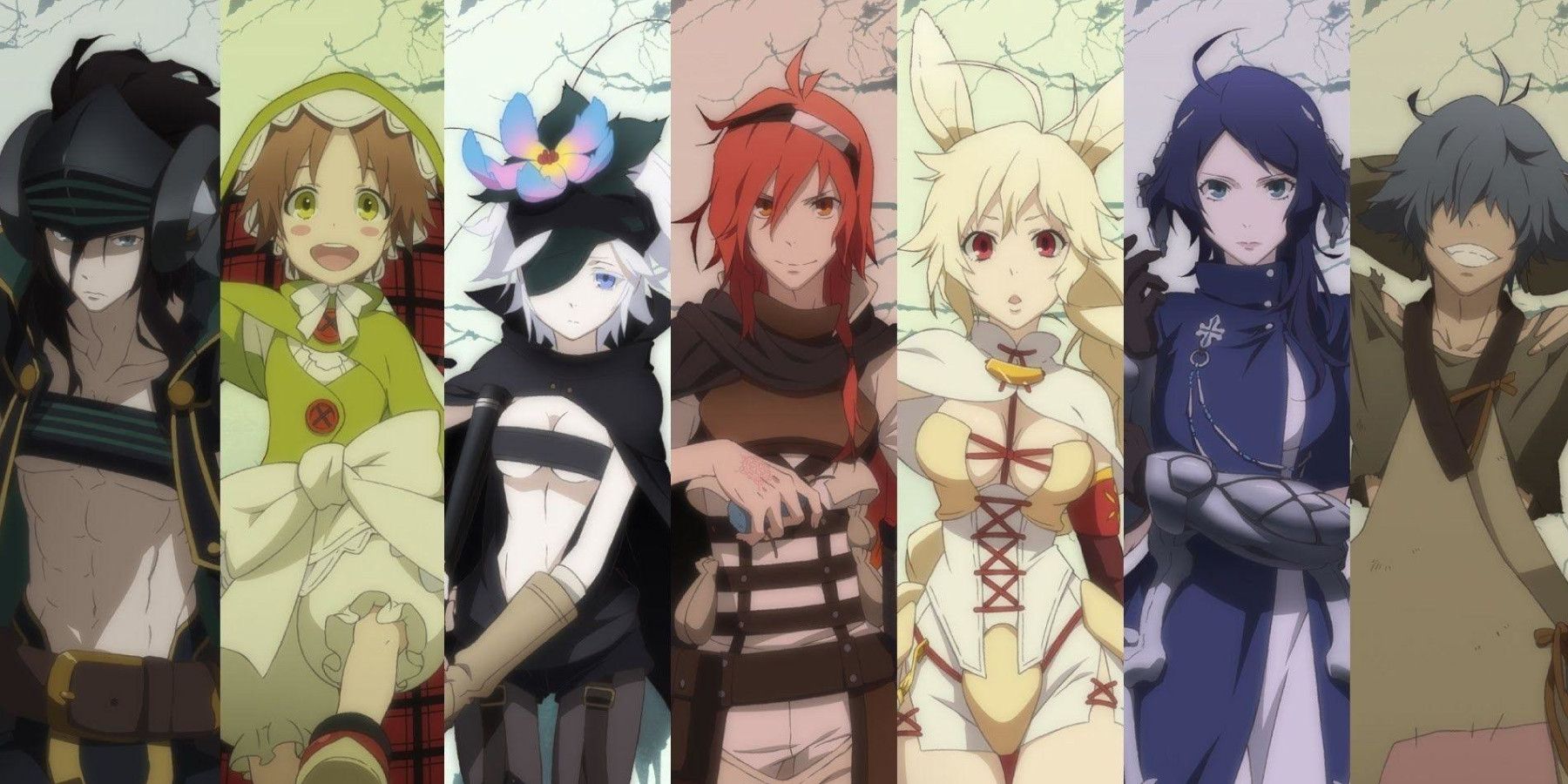
Exploring Genderfluidity in Hell's Paradise: Jigokuraku

Explore the significance of genderfluidity in Hell's Paradise: Jigokuraku's villains Discover how the series challenges traditional gender roles through its fluid portrayal of characters and the interstice between male and female identities
Hell's Paradise: Jigokuraku is a must-watch series, thanks to MAPPA's exceptional production. The show boasts several elements that make it a strong contender for one of the best anime of 2023. As an adaptation of Yūji Kaku's manga, the series has successfully captured the essence of the story. In the fifth episode, the plot took an intriguing turn as it introduced the Tensen- the series' antagonistic gods residing in "paradise."
The Tensen are an essential part of the show's narrative, and they embody many of the core themes that the series explores- the price of immortality, the perversion of the pursuit of wisdom, and the line between infinite beauty and horror, among others. The show challenges gender norms through its female characters, but it is the genderfluidity of the Tensen that truly stands out. The ability to switch between male and female at will, or to be both or neither, adds to their portrayal as perfect beings- as gods. This fluid expression of gender is significant in the overall context of the show.
Tradition
In the world of Hell's Paradise: Jigokuraku, gender roles are strictly defined and adhered to. Women like Sagiri and Gabimaru's wife, Yui, are expected to conform to traditional gendered expectations, with their abilities often overlooked and undervalued due to their gender. Sagiri, a skilled warrior, is constantly undermined by her male peers simply because of her womanhood. Despite her obvious talent, she is viewed as more of a vessel for birthing future warriors than a warrior herself. Her emotional nature is seen as a weakness, and her hesitation during crucial moments is viewed as a reflection of her inability to perform her duties to perfection. Yui, on the other hand, is forced to live with the physical scars of her father's patriarchal rule. Despite the obstacles in their way, both women strive to live life on their own terms and break free from the constraints of their society.
Girls, Girls, Girls, Girls
Episode 3 of Hell's Paradise Jigokuraku introduces us to the intriguing characters of Yuzuriha and Akaginu. While Sagiri and Yui represent a more traditional, demure form of femininity, Yuzuriha and Akaginu use their sexuality as a tool to survive in a world where they are considered pariahs. Akaginu, in particular, takes this to the extreme, presenting a sexually aggressive and perverse version of the classic "femme fatale" archetype. Despite their differences, all four women demonstrate the strength and resilience required to navigate the treacherous world of Hell's Paradise.
Nurugai stands out in Hell's Paradise: Jigokuraku due to her deviation from traditional femininity and patriarchal expectations. Despite being mistaken for a boy throughout most of her journey with Yamada Asaemon attendant, Tenza, Nurugai's androgynous physical appearance and masculine personality, speech pattern, and general characteristics make her a unique character. As a member of the Sanka people, a racial minority in touch with nature, Nurugai's non-conformity to binary gender expression aligns with the destruction of such expectations by a force seeking uniformity.
The Tensen's genderfluidity is first showcased through the introduction of Tao Fa and Ju Fa, who embody contrasting characteristics of masculinity and femininity, hostility and cheerfulness, all in perfect harmony. The explanation behind this unique trait is yet to be revealed, but it is hinted that their ability to assume any gender identity is linked to the awakening of the series' power system, Tao. To awaken to this power, one must embrace the middle way and accept the opposing forces within themselves.
In Hell's Paradise: Jigokuraku, the principle of Yin-Yang is central to Taoist understanding, which presents reality as the manifestation of two extremes. The Middle Way is achieved through acceptance of these extremes and assumes a "middle ground" that taps into the essence of all life force: Tao. The Tensen, who have mastered Tao from different positions and achieved sagehood through various trials, embody the Middle Way. They are based on the Eight Immortals of Chinese mythology, revered by Taoists as beings capable of bestowing life or destroying evil. Gender fluidity is a core component of Hell's Paradise: Jigokuraku, echoing central ideas in the construction of the Jigokuraku universe, particularly in the understanding of the "middle way" and the series' engagement with gender.
